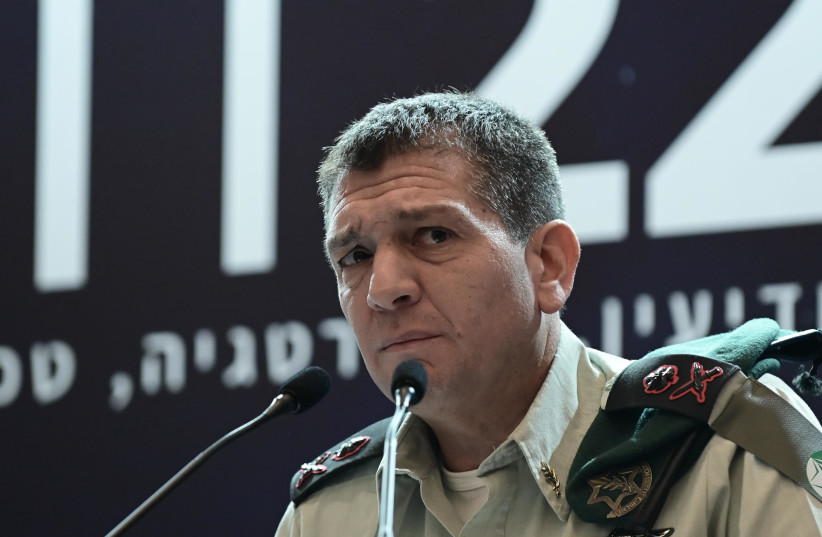Military Intelligence Directorate head to resign due to Oct. 7 massacre, takes responsibility
IDF Military Intelligence Directorate Chief Aharon Haliva believed that following the events of October 7, his tenure in office was on borrowed time.
“Already that morning I understood that it was over,” he told his associates, “after the war is over I will have to go.”
Now, all that remains for Haliva is to figure out when he intends to retire, whether it be after Israel officially announces the end of the war, or before there is any sort of permanent ceasefire and the army switches to a method of operation of raids only.
Either way, Haliva is already considered in the Intelligence Division as a “lame duck,” and the succession battle for his position has already begun.
On the night between Friday and Saturday, around 02:30, the Chief of Staff, Herzi Halevi, held an encrypted telephone call on the IDF’s “red line” with Major General Oded Basyuk, the head of the Operations Directorate, and Major General Yaron Finkelman, the head of the IDF’s Southern Command, to discuss intelligence gathered from various collection agencies in the Shin Bet and Military Intelligence.

For an unclear reason, it was decided that Haliva wouldn’t participate in the discussion, which also covered his area of responsibility. Simultaneously, updates were provided on the accumulated intelligence regarding the situation along the Gaza Strip border. The chief of staff’s assistant, who organized the call, briefed Halevi, and later other assistants to the generals, including Major General Amit Saar, head of the Research Division, updated Haliva.
According to assessments based on the intelligence gathered prior to October 7 and indications of Hamas exercises near the border, the most severe scenario likely to occur is the infiltration of Hamas militants for a lone attack on the border – yet this was defined as a low probability. Military Intelligence estimated that most likely these were routine exercises by the terrorist organization’s military wing, similar to the months preceding the attack.
Security officials privy to the details of the intelligence emphasized that in no way was there mention of a strategic alert for war, a widespread offensive on multiple fronts, or an intention to penetrate multiple settlements simultaneously.
It’s important to highlight that after the discussion between Halevi, Haliva, and Finkelman, Shin Bet chief Ronen Bar spoke with Halevi regarding the intelligence content, and eventually decided to dispatch “Tequila” teams to the Gaza border to analyze the emerging intelligence and dismiss the possibility of a single infiltration attack.
The next update to Haliva was at 06:29 when the largest barrage of rockets ever from the Gaza Strip was launched towards Israel’s south.
Lack of proper communication raises serious questions
The General Staff’s conduct raises tough questions: Who decided not to include the Chief of Military Intelligence in the generals’ discussion with Halevi, Finkelman, and Basyuk?
Was it Halevi who didn’t insist on his participation? Or a spontaneous decision by the Chief of Staff’s assistant who arranged the discussion? Even if claimed to be a quick decision in response to very limited intelligence and the situation on the ground, it is expected that either the Chief of Staff or one of the generals would question why the Chief of Military Intelligence wasn’t brought into the brief discussion or at least spoken to afterward.
Undoubtedly, had Haliva participated in the conversation, even when there was no information about a wide-scale attack or declaration of war on Israel, his involvement could have had a significant contribution and weight in subsequent decisions. In hindsight, signs of activity in the area were evident, but no one connected these signs with the Military Intelligence.





Comments are closed.